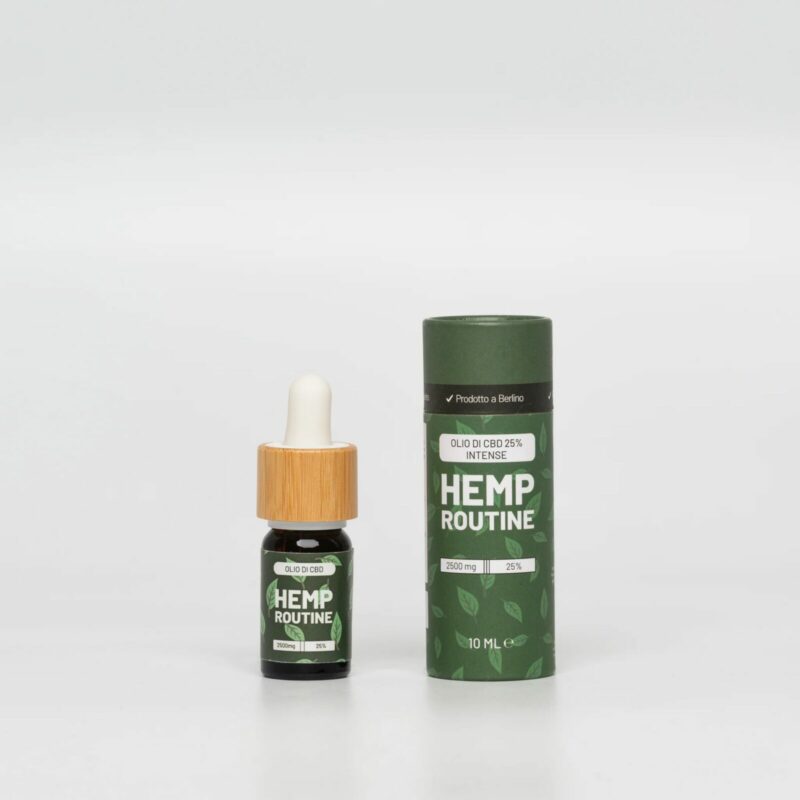In recent years, my psychological state has been experiencing disruptions: depression, panic attacks, chronic anxiety, and so on.
It has become increasingly difficult to cope with these issues while life goes on. My children need my attention, work demands concentration, and I long for a sense of peace. However, my condition keeps me in a constant state of tension, leading to aggression and overwhelming fatigue. Of course, this has taken a toll on my overall health. It is evident that after experiencing COVID-19, I have endured numerous stressful situations and continue to deal with many challenges. However, stress is not the sole cause. I have sought help from psychologists and consulted with doctors, but I haven’t received any definitive answers. My medical tests have mostly been normal, yet my condition keeps deteriorating.
I have started paying more attention to my body, tracking my menstrual cycle, observing my mood swings, and actively seeking information. Here’s what I have discovered.
Disclaimer: What I am sharing is based on my personal experience, and I am not a doctor, so I cannot provide advice. However, this information may prove to be helpful to some.
PREMENSTRUAL SYNDROME (PMS)
(In my case, I am referring to the recent and more severe situation.)
Approximately 20-50% of women of reproductive age experience symptoms related to the luteal phase (from ovulation to the beginning of menstruation) known as Premenstrual Syndrome (PMS).
The symptoms include:
Psychological symptoms include:
- Irritability
- Depressed mood
- Heaviness in the chest
- Back pain
- Feeling of bloating
- Headaches
- Difficulty in concentration and memory
- Anxiety
- Changes in appetite
- Fatigue
- Decreased libido
- Insomnia
Physical symptoms include:
- Headache
- Low tolerance to loud sounds/bright lights
- Abdominal pain
- Tension and pain in the chest
- Constipation or diarrhea
- Back pain
Causes include:
The cause of Premenstrual Syndrome (PMS) is unknown. Possible causes or contributing factors to the development of PMS include:
- Neuroendocrine origin (hypoglycemia, changes in carbohydrate metabolism, hyperprolactinemia, fluctuations in circulating estrogen and progesterone levels, dysregulation of estrogen and progesterone responses, excessive levels of aldosterone or antidiuretic hormone).
- Genetic predisposition
- Serotonin deficiency
- Possible deficiencies in magnesium and calcium.
Premenstrual Dysphoric Disorder (PMDD)
This is a more severe form of Premenstrual Syndrome (PMS) that causes symptoms so intense that they interfere with daily activities and functioning. It is called Premenstrual Dysphoric Disorder (PMDD).
Premenstrual Dysphoric Disorder (PMDD)
Additional symptoms may include:
- Feeling of fullness or overeating
- Increased depressive mood Intense mood swings
- Sensitivity to rejection
- Heightened irritability and anger
- Social withdrawal
- Sudden crying and feelings of sadness and despair
What to do?
There is no one-size-fits-all treatment that works for everyone and all symptoms. In addition to classic recommendations, such as:
- Engaging in physical activity (reduces bloating and irritability)
- Practicing relaxing exercises such as yoga, meditation, and sleep training
- Considering the possibility of using additional supplements, medications, and hormonal therapy with your own doctor
- The psychotherapeutic approach can help learn better coping mechanisms for the symptoms.
Now let’s talk about what helps me..
In recent years, my psychological state has been experiencing disruptions: depression, panic attacks, chronic anxiety, and so on.
It has become increasingly difficult to cope with these issues while life goes on. My children need my attention, work demands concentration, and I long for a sense of peace. However, my condition keeps me in a constant state of tension, leading to aggression and overwhelming fatigue. Of course, this has taken a toll on my overall health. It is evident that after experiencing COVID-19, I have endured numerous stressful situations and continue to deal with many challenges. However, stress is not the sole cause. I have sought help from psychologists and consulted with doctors, but I haven’t received any definitive answers. My medical tests have mostly been normal, yet my condition keeps deteriorating.
I have started paying more attention to my body, tracking my menstrual cycle, observing my mood swings, and actively seeking information. Here’s what I have discovered.
Disclaimer: What I am sharing is based on my personal experience, and I am not a doctor, so I cannot provide advice. However, this information may prove to be helpful to some.
PREMENSTRUAL SYNDROME (PMS)
(In my case, I am referring to the recent and more severe situation.)
Approximately 20-50% of women of reproductive age experience symptoms related to the luteal phase (from ovulation to the beginning of menstruation) known as Premenstrual Syndrome (PMS).
The symptoms include:
Psychological symptoms include:
- Irritability
- Depressed mood
- Heaviness in the chest
- Back pain
- Feeling of bloating
- Headaches
- Difficulty in concentration and memory
- Anxiety
- Changes in appetite
- Fatigue
- Decreased libido
- Insomnia
Physical symptoms include:
- Headache
- Low tolerance to loud sounds/bright lights
- Abdominal pain
- Tension and pain in the chest
- Constipation or diarrhea
- Back pain
Causes include:
The cause of Premenstrual Syndrome (PMS) is unknown. Possible causes or contributing factors to the development of PMS include:
- Neuroendocrine origin (hypoglycemia, changes in carbohydrate metabolism, hyperprolactinemia, fluctuations in circulating estrogen and progesterone levels, dysregulation of estrogen and progesterone responses, excessive levels of aldosterone or antidiuretic hormone).
- Genetic predisposition
- Serotonin deficiency
- Possible deficiencies in magnesium and calcium.
Premenstrual Dysphoric Disorder (PMDD)
This is a more severe form of Premenstrual Syndrome (PMS) that causes symptoms so intense that they interfere with daily activities and functioning. It is called Premenstrual Dysphoric Disorder (PMDD).
Premenstrual Dysphoric Disorder (PMDD)
Additional symptoms may include:
- Feeling of fullness or overeating
- Increased depressive mood Intense mood swings
- Sensitivity to rejection
- Heightened irritability and anger
- Social withdrawal
- Sudden crying and feelings of sadness and despair
What to do?
There is no one-size-fits-all treatment that works for everyone and all symptoms. In addition to classic recommendations, such as:
- Engaging in physical activity (reduces bloating and irritability)
- Practicing relaxing exercises such as yoga, meditation, and sleep training
- Considering the possibility of using additional supplements, medications, and hormonal therapy with your own doctor
- The psychotherapeutic approach can help learn better coping mechanisms for the symptoms.
Now let’s talk about what helps me…
I tried Therapy with a psychologist, but in my situation, it turned out to be a complete failure. It only made me more upset, and in the end, I decided to discontinue the therapy.
Exercise – in my case, hiking and running are a great help… but the weather hasn’t been cooperating this year. Spring in Italy is delayed, and we’ve been experiencing a lot of rain.
Hypoglycemia! This is the factor I noticed immediately. Recently, I started paying attention to my metabolism and how my body reacts to foods containing sugar. After lunch or dinner, I began observing increased irritability, heightened anxiety, and frequent bloating.
At that point, I decided to eliminate sugar from my diet: rice, pasta, bakery products, sweets, and so on. This, of course, can affect your metabolism and digestive system, and it did with me. But I chose not to create a new problem out of it. After revising my diet, I started having bran and dried fruits with oat milk for breakfast.
In general, I eat everything: meat or fish with vegetables… I consume a large quantity of vegetables, mostly grilled, roasted, or raw (without added sugar), cheese, various salads… I use different seeds, olive oil, vinegar, lemon juice, eat plain yogurt, and occasionally add honey, apples, strawberries… I try to avoid alcoholic beverages, and if I do consume them, it’s mainly a glass of red wine.
Once a week, I allow myself to have pizza or any other sugary foods, but only if I really crave them. This diet has already shown results within the first week. I sleep better, and the feelings of anxiety and irritation have reduced. I particularly notice the difference when I suddenly eat something sugary… My body reacts instantly, and perhaps that’s why giving up sugar has become much easier for me. I know the potential consequences, so I don’t have the desire to take risks.
Of course, this diet didn’t solve all my problems, and my body didn’t magically start working in a different way.
Medication: I was prescribed tranquilizing drops, but I try to refrain from that kind of treatment. I firmly believe that regardless of what they say, dependence on medication is inevitably developed.
However, after extensive research and consulting various experts, my husband found these HEMP ROUTINE drops online, and I must admit they have been very helpful for me. Of course, it’s important to adjust the dosage… similar drops are produced by many other brands. Alternative options can be found on the Amazon website.









